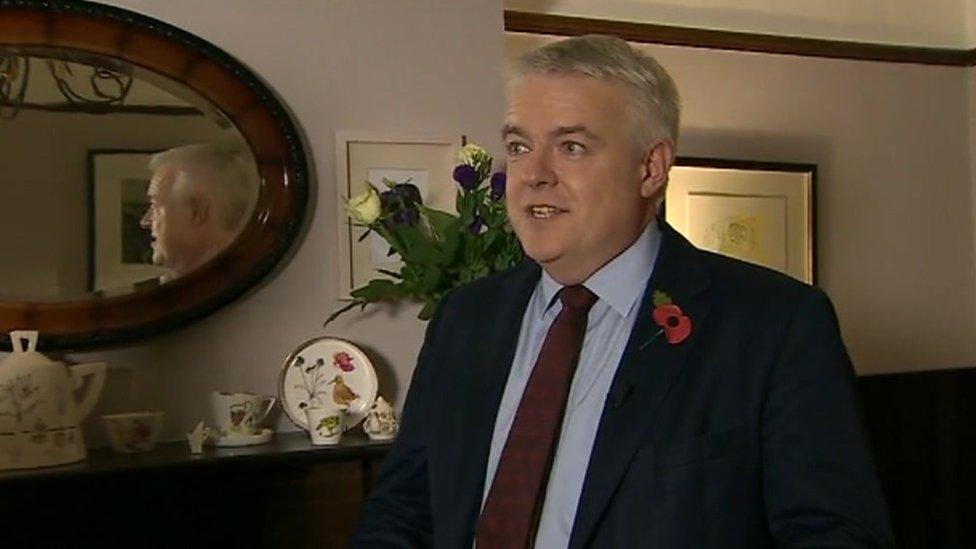Draft Wales Bill unclear and unworkable, Dame Rosemary says
- Published
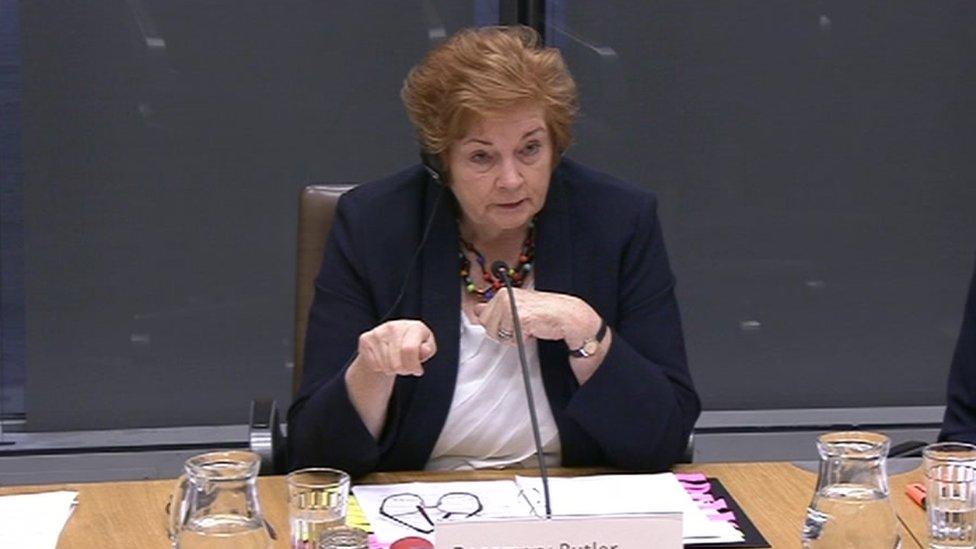
A bill offering more powers to Wales is "unclear and unworkable", the assembly's presiding officer has said.
Dame Rosemary Butler told AMs that politicians would return to discussions on devolution "in no time at all".
Welsh Secretary Stephen Crabb has said the draft Wales Bill, external would build a "stronger Wales within the UK", offering more say over energy, transport and assembly elections.
But Dame Rosemary claimed the assembly could lose some of its powers.
The concerns centre on the bill's recommendation of moving to a reserved powers model, by which everything not listed as the responsibility of Westminster is assumed to be devolved.
'Missed opportunity'
"I was very disappointed because it is going to cause huge confusion," she told the assembly's constitutional and legal affairs committee on Monday.
"I think it is a missed opportunity to have something which is perfectly understandable along the lines of the Scottish settlement, which isn't perfect, but at least people understand it."
Dame Rosemary claimed the current nine tests to decide whether is something is devolved would rise to 10 under the planned legislation.
Elisabeth Jones, the assembly's director of legal services, told the committee the draft bill placed locks and impediments on the assembly.
She said the bill offered "a reserved powers model with a conferred powers mindset behind it".
Many Cardiff Bay politicians have claimed clauses which require UK government consent for the assembly to legislate amount to a veto on Welsh laws.
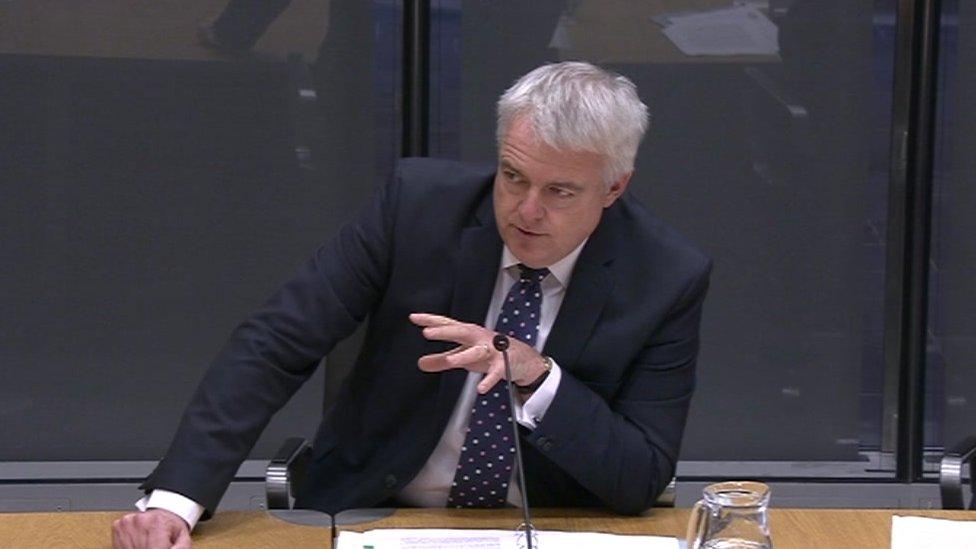
First Minister Carwyn Jones, also giving evidence on Monday, told AMs that the draft Wales Bill went against the wishes of the people who voted for more power for Wales in the 2011 referendum.
"There is no doubt in my mind that every bill that passes through this place will be challenged in court, not only by the attorney general but by individuals," he said.
"What we would have here is a situation where instead of the elected assembly deciding what is necessary, the courts would do it - and that can't possibly be right."
The assembly's lawyers have drawn up amendments to the bill which the presiding officer claims would address the biggest concerns.
- Published9 November 2015
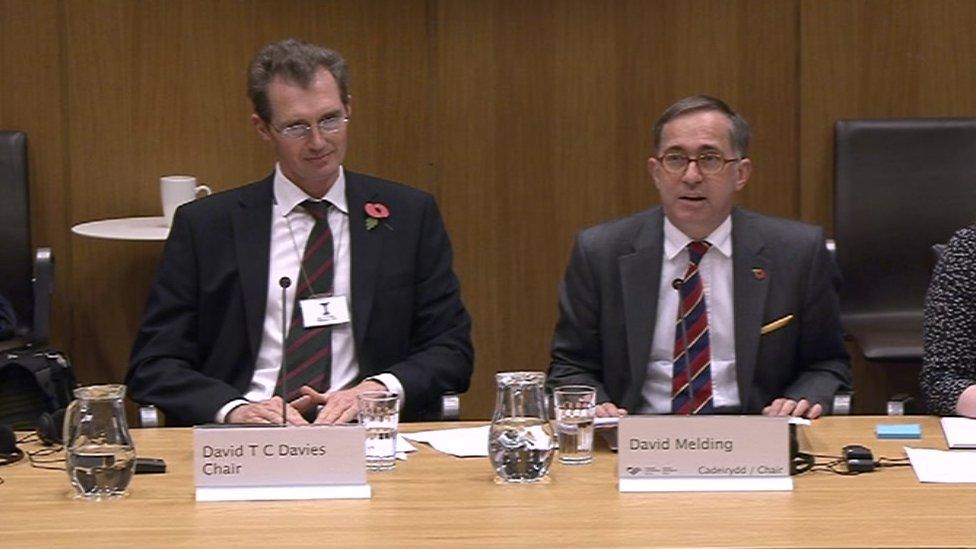
- Published3 November 2015
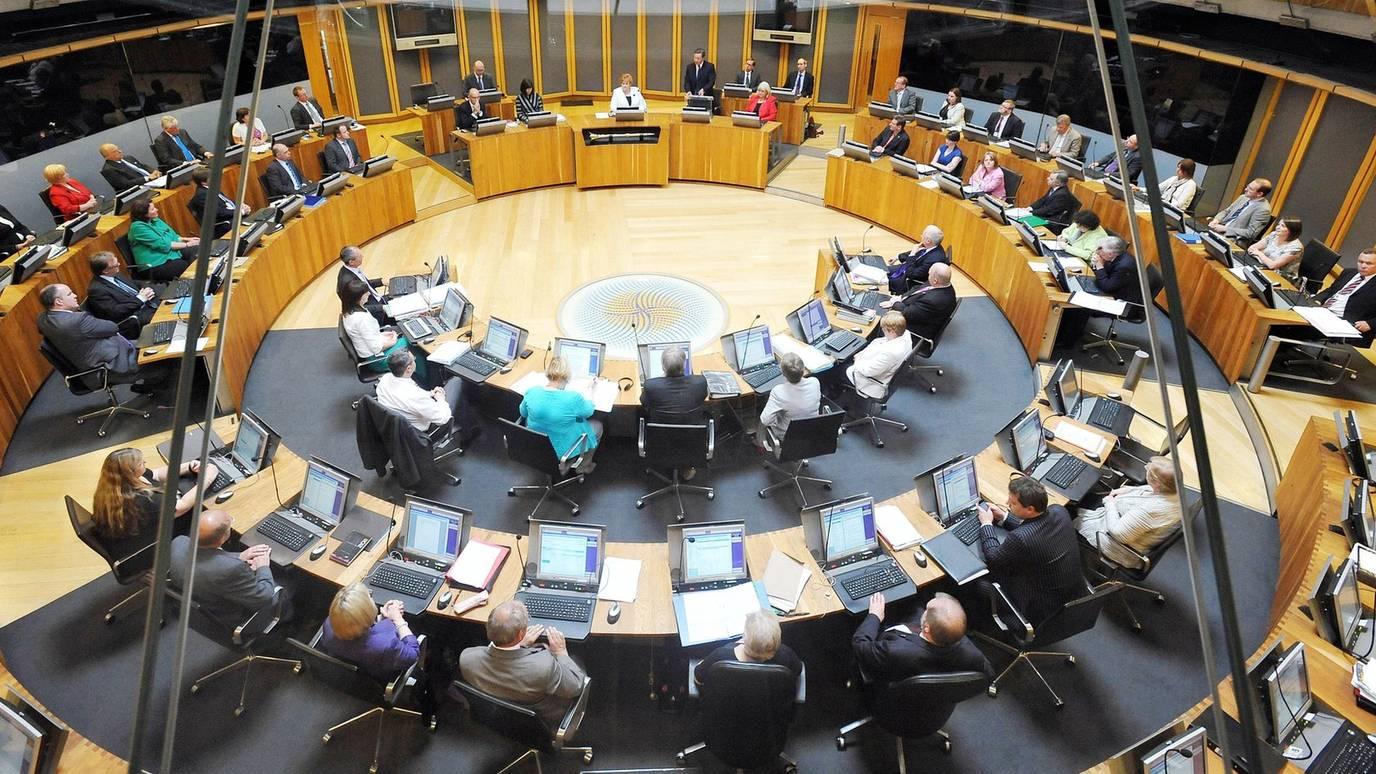
- Published29 October 2015
